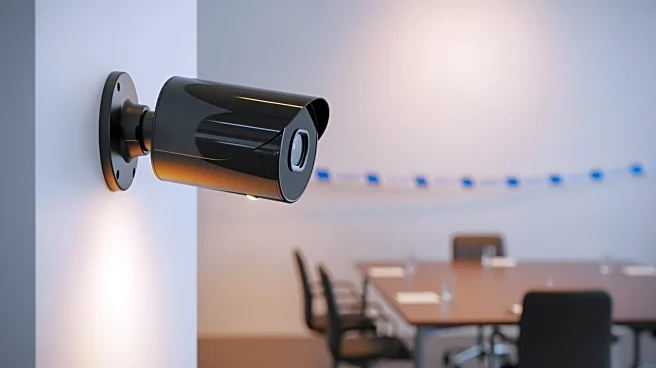What's Happening?
Linda Sun, a former aide to then-Lt. Gov. Kathy Hochul, is accused of forging Hochul's signature on letters sent to Chinese dignitaries from the Henan province. These letters, presented at Sun's trial,
were intended to invite the delegation to meet with then-Gov. Andrew Cuomo. The letters, featuring an 'overly loopy' handwriting, were allegedly used to promote investment and trade cooperation with New York State. Sun, who served as Cuomo's director of Asian-American affairs, is charged with fraud, bribery, and money laundering. Prosecutors claim Sun's actions were part of a broader scheme to advance China's agenda in New York, with her family receiving gifts and contracts in return. Sun and her husband, Chris Hu, are also accused of taking kickbacks from a PPE company during the COVID-19 pandemic.
Why It's Important?
The allegations against Linda Sun highlight potential vulnerabilities in state-level governance and the influence of foreign entities on U.S. politics. If proven, these actions could have significant implications for U.S.-China relations, particularly in terms of diplomatic trust and security. The case underscores the importance of transparency and accountability in public office, as well as the need for stringent measures to prevent foreign interference. The trial could lead to increased scrutiny of foreign interactions with state officials and impact future policy decisions regarding international cooperation.
What's Next?
The trial is expected to continue for several weeks, with testimony from state officials and experts on China-U.S. relations. Prosecutors plan to call Sun's mother as a witness, despite objections from Sun's attorneys. The outcome of the trial could influence future legislative actions to safeguard against foreign influence in state affairs. Additionally, the case may prompt other states to review their protocols for international engagements and the registration of foreign agents.
Beyond the Headlines
This case raises ethical questions about the role of public servants and their interactions with foreign governments. It also highlights the potential for corruption in international trade and investment negotiations. The trial may lead to broader discussions on the ethical responsibilities of public officials and the need for clear guidelines on foreign relations at the state level.










